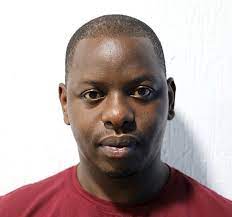

The current status of Rwanda’s forest cover is 724,695 hectares (30.4 per cent) of Rwanda’s total land area.
In 2011, Rwanda committed to restoring two million hectares of land by 2030 through the Bonn Challenge.
Here are the top ten projects under implementation to help achieve and sustain these targets:
Rwf23bn to restore degraded forests in Southern, Northern provinces
The Ministry of Environment, in May, 2024, launched $18 million (approximately Rwf23 billion) project to restore degraded land and forests in all districts of Southern Province and Gakenke in Northern Province from 2024 to 2028.
Soil erosion control will be carried out on 1,000 hectares with terraces while agro-forestry trees including fruit trees will be planted on 80,000 hectares.
Nearly 10,000 improved cook stoves will be disseminated to farmers’ households to decrease pressure on trees.
The success of the project will depend on the strong collaboration and partnership between the ministry of environment, Rwanda Forestry Authority, the ministry of agriculture and animal resources and districts where the project will intervene
It was financed by African Development Bank (AFDB).
$49.6 million in Eastern Province
In Eastern Province of Rwanda, a $49,6 million project funded by Green Climate Fund ( GCF) with co-financing of Government of Rwanda and accredited to the International Union for Conservation of Nature- IUCN is being implemented by the Ministry of Environment through Rwanda Forestry Authority in collaboration with Enabel, CIFOR- ICRAF, Cordaid, and World Vision from 2021 to 2027.
It is expected to restore 60,000 hectares of drought degraded landscapes into climate resilient ecosystems through reforestation, agroforestry, restoration of pasturelands and soil erosion control measures in seven districts of Eastern Province namely Gatsibo, Nyagatare, Bugesera, Ngoma, Kirehe, Kayonza, and Rwamagana districts.
$50 million project to restore Congo-Nile Divide
The government has embarked on a new initiative aimed at restoring the Congo-Nile Divide to combat deforestation and erosion while enhancing climate resilience in the Western, Northern and Southern provinces.
The Congo–Nile Divide or the Nile–Congo watershed is the continental divide that separates the drainage basins of the Congo and Nile rivers.
Scheduled to run from 2024 to 2028, the $50 million (approx. Rwf64 billion) project targets 10 districts, including Karongi, Ngororero, Nyabihu, Nyamasheke, Rubavu, Rusizi, and Rutsiro in Western Province; Nyamagabe and Nyaruguru in Southern Province; and Musanze in Northern Province.
It will cover 250,000 hectares with forest restoration, and expand agroforestry over 2,000 hectares.
The project will directly benefit approximately 1.2 million people, including 654,404 women, and is expected to create about 24,212 jobs in forest-dependent communities.
Rwf40bn for forest management in Kaduha-Gitwe corridor
In June, 2024, the governing board of the Climate Investment Funds (CIF) approved $31 million (approximately Rwf40 billion) in funding for Rwanda.
This investment aims to boost forest productivity, manage forests sustainably, restore and protect wetlands, and promote income-generating activities that support climate-resilient livelihoods.
The Kaduha-Gitwe corridor to be covered by the project includes five sectors in Nyamagabe District (Kaduha, Kibumbwe, Mbazi, Mugano, and Musange), three sectors in Ruhango District (Bweramana, Kinihira, and Kabagari), and two sectors in Nyanza (Nyagisozi and Cyabakamyi.
$32 million Gicumbi Project
The six-year $32 million Green Gicumbi project was launched in 2019 and it is being implemented by the Rwanda Green Fund in collaboration with the Green Climate Fund.
It focuses on strengthening livelihoods and climate resilience in the Gicumbi District one of the climate-vulnerable Districts.
The project targets to reach 150,000 direct beneficiaries and 380,000 indirect beneficiaries through various components like watershed protection, climate-resilient agriculture, sustainable forest management, and climate-resilient settlements.
$32.7 million Green Amayaga Project
Rwanda, in 2020, launched an ambitious $32.7 million landscape restoration project that seeks to restore the natural forests of Amayaga in Rwanda’s Southern Province and benefit 1.3 million Rwandans up to 2025.
The project will advance the restoration of the degraded forests in the area, the landscape of which covers more than 550 hectares, or 0.14% of Rwanda’s total national natural forests, 10% of the planted forest as well as many patches of remnant forest.
The Amayaga region hosts the 354 hectare natural forest of Kibirizi-Muyira as well as the Busoga forest reserves.
It will also increase the erosion control and protection of marshlands and buffer zones, this will also increase agriculture productivity. In total, 263,000 hectares of agricultural land will be restored and rehabilitated.
The project will create approximately 150,000 jobs during the six years of implementation and provide 7,500 households with livestock to improve food security and increase incomes.
In addition , 60,000 households will be provided with improved and energy efficient cook stoves to reduce wood consumption and greenhouse gases emissions, and halt indoor respiratory diseases.
Two islands to undergo forest restoration
Two Lake Kivu islands, Shyute and Kamiko that were once deforested and degraded will soon be restored with 156,000 different tree species, including native species, to help Rwanda tap into the carbon market.
Biodiversity Conservation Organization (BIOCOOR) will work with government to restore the two islands.
Rwf4bn project to curb floods in Rusizi River, Lake Kivu basins
Flooding and landslides in the Rusizi River and Lake Kivu basins could soon be minimised under a $3 million (approximately Rwf4 billion) project to strengthen resilience to climate change.
The five-year project to prevent landslides and floods in the basins will be implemented by the government of Rwanda and Albertine Rift Conservation Society (ARCOS).
The project will help the government in its plan to protect rivers and lakes, plant trees, construct terraces, control soil erosion and other practices.
Forests under carbon market
Over 3,000 Rwandan forest farmers and cooperatives could soon get additional money as an incentive for protecting and preserving their trees under the carbon market scheme.
Rwanda Forestry Authority (RFA) has placed forests covering approximately 1,000 hectares, managed by farmers’ cooperatives in four districts, on the carbon market. This serves as an incentive for farmers' efforts in conserving the forests.
Nyungwe Agroforestry Project (NAP)
This 20-year sustainable project aims to positively impact 13,000 hectares of farmland and involve 23,000 smallholder farmers along the eastern border of Nyungwe National Park in Nyamagabe and Nyaruguru Districts.
The project will also contribute towards climate change mitigation through planting trees that store carbon. The project is applying to be registered under the Gold Standard to receive certified carbon credits for the emission reductions resulting from project activities (tree planting etc.)
$300 million land restoration initiative around Mukungwa River
A $300 million initiative to curb flooding and erosion through land restoration in the Northern and Western provinces will protect the Mukungwa River, a tributary of the Nyabarongo River.


